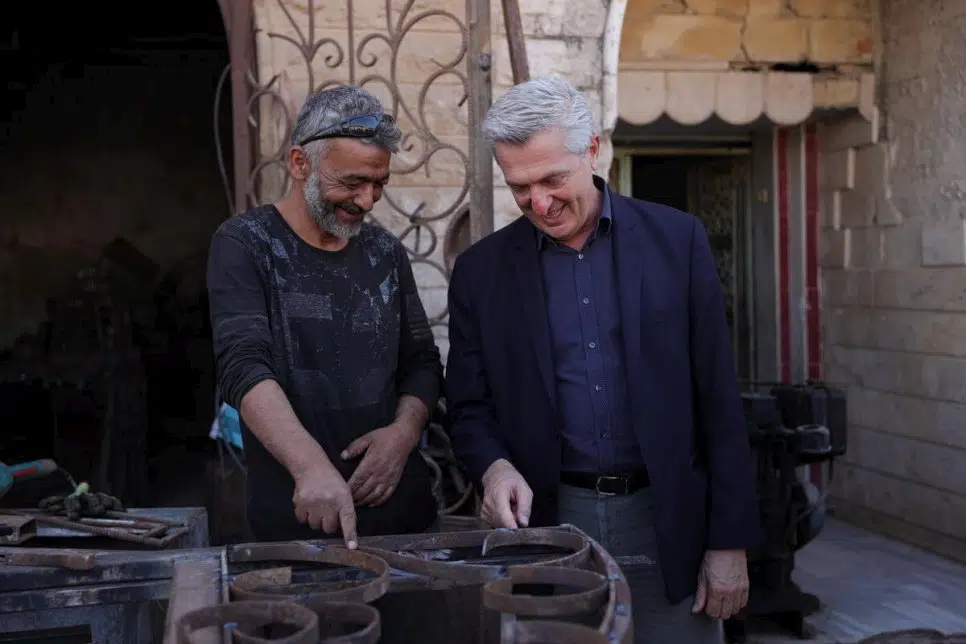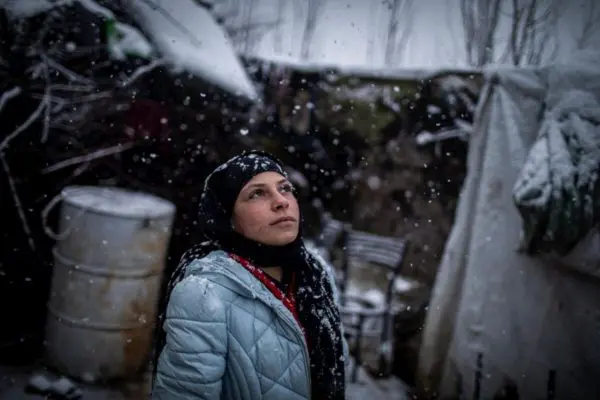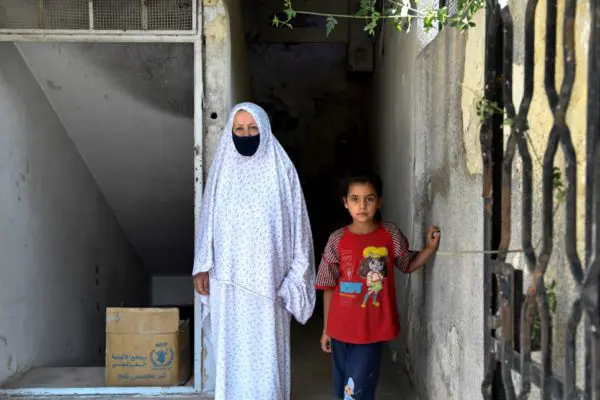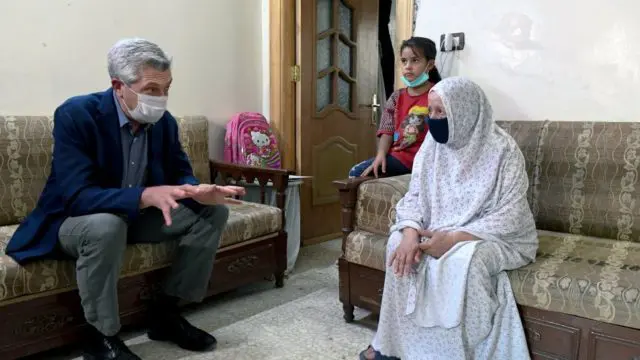
UN High Commissioner for Refugees Filippo Grandi (right) meets formerly displaced blacksmith Wasel outside his workshop in Talbiseh, Syria. © UNHCR/Saad Sawas
DAMASCUS, Syria – UN High Commissioner for Refugees Filippo Grandi reaffirmed UNHCR’s support to the most vulnerable in Syria and urged an increase in the scope of humanitarian assistance in the country, including to people who have chosen to return home following years of displacement inside their own country or abroad.
During a two-day visit to the Syrian Arab Republic which concluded on Sunday, Grandi travelled to the town of Talbiseh, in Homs Governorate, where he met families who had returned to the town after years of displacement inside Syria or from neighbouring Lebanon. He heard from Syrians such as Abeer, a mother of seven children displaced twice inside Syria within three years. Abeer explained the difficult decision she had faced on when to return, and the challenges now confronting her and her family.
“Families spoke of years of suffering, and they are exhausted. Yet I also witnessed their strength and determination to rebuild their lives. Even if UNHCR and partners helped some of the families I met install doors and windows on their partially damaged homes, they still needed water and electricity. They still need schools and hospitals, and they need to make a living. This is a humanitarian imperative,” Grandi said.
As part of its work to help find solutions to displacement, UNHCR, the UN Refugee Agency, works to help address the concerns of refugees and internally displaced people (IDPs) who are contemplating return and provides humanitarian support to those who have returned spontaneously and their communities.
Some of the interventions aim to increase their self-reliance and reduce their dependency on assistance.
“Periods that follow conflicts are always extremely complex. But we have to always keep in mind that at the end this is about human beings with desperate needs. They should not continue to pay the price for unresolved crises. While we wait for political solutions, their lives go on, and we need to support them to have dignified lives,” Grandi said.
More than 13 million Syrians have been displaced in the past 10 years. Around 6.7 million are displaced inside the country and 5.5 million are hosted in five neighbouring countries in the region.
Economic crises inside Syria and refugee hosting countries, compounded by the devastating impact of the COVID-19 pandemic, a sharp devaluation of local currencies and skyrocketing prices have multiplied challenges for those displaced and stretched their ability to cope to the limit, forcing them to make impossible choices.
Grandi met with the Syrian Foreign Minister, Faisal Mekdad, and Minister of Local Administration and Environment, Hussein Makhlouf, and discussed issues related to return, including how to address refugees’ concerns.
“These are Syrian nationals, and it’s the government’s responsibility to ensure their security,” the High Commissioner said.
“We are engaging with the government to highlight refugees’ concerns such as their safety, property rights and livelihoods. We also need the international community to help as well, to provide much-needed resources so that people can also fix their damaged homes, have running water, health care and send their children to school. Sustainable returns require collaboration from all concerned parties. We must also ensure robust support to refugees and hosting countries” he added.
UNHCR in Syria provides protection and assistance to refugees, IDPs, returnees and stateless people based on identified needs and vulnerabilities.
For more information please contact:
In Amman, Rula Amin, aminr@unhcr.org, +962 790045849
In Geneva, Aikaterini Kitidi, kitidi@unhcr.org, +41 79 580 8334
In New York, Kathryn Mahoney, mahoney@unhcr.org, +1 347 443 7646
Originally published by UNHCR on 18 October 2021





